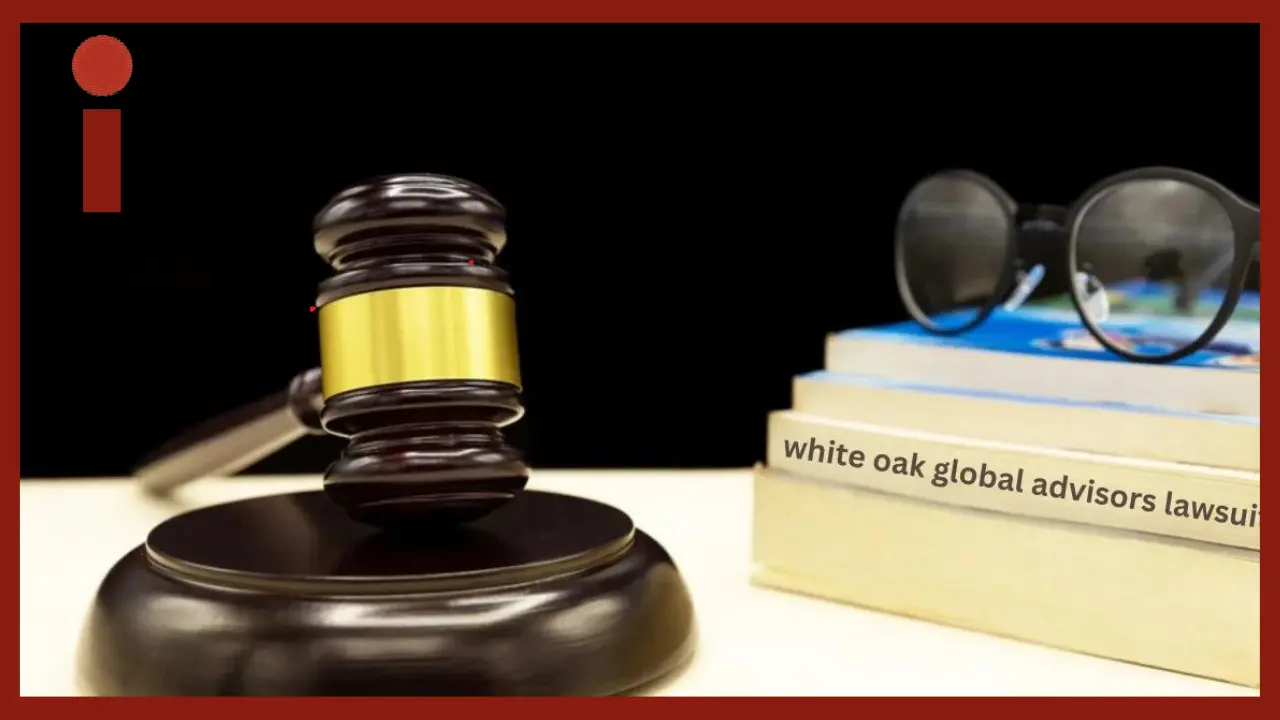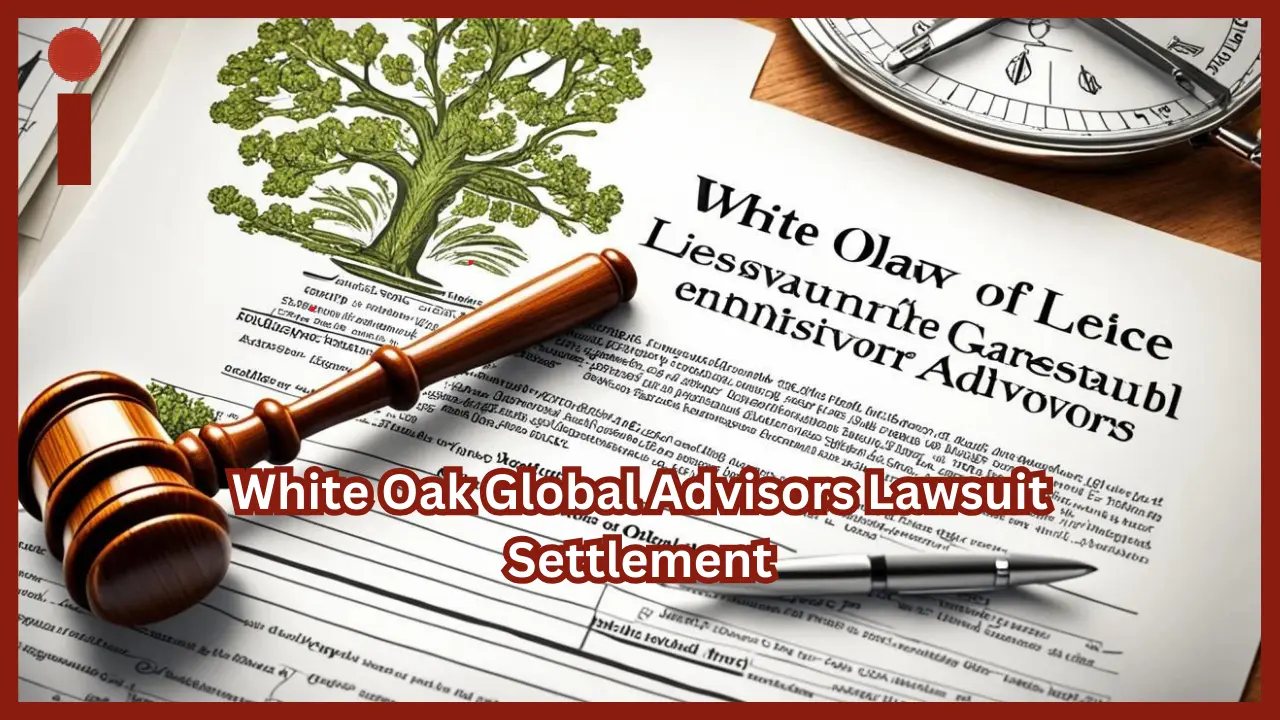Investment management firms are tasked with the critical responsibility of managing large sums of money on behalf of their clients. Any misstep, lack of transparency, or breach of fiduciary duty can lead to significant financial and legal repercussions. The White Oak Global Advisors lawsuit settlement is one such case that has sparked widespread attention. This case revolves around accusations of improper fund management, hidden fees, and violation of fiduciary duties. For investors, it serves as a vital lesson in understanding how important it is to hold investment firms accountable for their actions. In this article, we will explore the lawsuit’s details, the legal claims, the settlement’s impact, and the broader lessons for the investment community.
The White Oak Global Advisors lawsuit settlement has far-reaching implications for both investors and the broader financial industry. With over $100 million at stake, this case not only highlighted the firm’s alleged mismanagement but also underscored the critical role of transparency and trust in the investment process. Investors must remain vigilant about how their money is being managed, and this case is a stark reminder of the consequences when trust is breached. By delving deep into this case, we will explore the specifics of the lawsuit, how the settlement was reached, and the ripple effects it has on the investment world.
This article will also discuss the lessons investors can learn from the White Oak Global Advisors lawsuit settlement, providing practical insights into how individuals can protect their investments in the future. By the end of this post, readers will have a detailed understanding of the case, the role of regulatory bodies in enforcing fiduciary responsibilities, and how such legal battles shape the financial industry’s future.
The Origins of the White Oak Global Advisors Lawsuit
The lawsuit involving White Oak Global Advisors emerged from their handling of the New York State Nurses Association (NYSNA) pension fund. This pension fund represents thousands of healthcare professionals who rely on it for their retirement savings. The case’s origins lie in the accusation that White Oak failed to act in the best interest of the pensioners by not disclosing certain fees and allegedly mismanaging the investment portfolio. According to the lawsuit, White Oak Global Advisors breached its fiduciary duty, causing financial harm to the pension fund.
Fiduciary Duty and Its Importance
A fiduciary duty is one of the most significant obligations an investment advisor has. It requires advisors to act in the best interests of their clients, making decisions that prioritize the client’s financial well-being over any potential personal gain. In the case of White Oak Global Advisors, the lawsuit alleged that the firm violated this critical responsibility. It was claimed that White Oak made decisions that benefited their firm rather than the pensioners, leading to substantial losses for the fund. This accusation forms the foundation of the legal claims against White Oak.
In addition to the fiduciary duty breach, the White Oak Global Advisors lawsuit settlement also brought to light questions surrounding transparency in fee disclosure. Investment firms are expected to be transparent with their clients about any fees or additional costs associated with their services. Hidden fees can erode returns over time, significantly impacting an investor’s long-term financial health. The lack of transparency in this case added fuel to the pension fund’s legal battle.
The Allegations of Financial Mismanagement
The White Oak Global Advisors lawsuit accused the firm of engaging in investment strategies that were not aligned with the pension fund’s risk tolerance and objectives. Mismanagement of investments can result in substantial financial losses, especially for long-term funds like pension plans. Pension funds are generally conservative, as they need to provide a stable return for retirees. The lawsuit alleged that White Oak’s investment strategies exposed the pension fund to undue risk, which ultimately harmed its financial performance.
The allegations of mismanagement extended to claims that White Oak’s investment strategies were overly aggressive and failed to generate the returns that were expected. This resulted in the pension fund losing millions of dollars, leading to the legal battle that culminated in the White Oak Global Advisors lawsuit settlement. For the pensioners relying on the fund for their retirement, this was a significant financial blow.
Major Legal Claims in the White Oak Global Advisors Lawsuit

The White Oak Global Advisors lawsuit was built on several key legal claims. These claims centered around breach of fiduciary duty, failure to disclose fees, and improper management of the investment portfolio. Each of these claims played a crucial role in shaping the legal proceedings and the eventual settlement.
Breach of Fiduciary Duty
At the heart of the lawsuit was the accusation that White Oak Global Advisors failed to uphold its fiduciary duty. Investment advisors are legally required to act in the best interests of their clients, and any failure to do so can result in legal action. The lawsuit alleged that White Oak engaged in practices that prioritized the firm’s profits over the interests of the pension fund. This included engaging in investments that were not suitable for the fund’s objectives and exposing it to unnecessary risks.
The breach of fiduciary duty claim was one of the most serious allegations in the case. If proven, it could result in severe penalties for the firm and set a precedent for other investment advisors. In this case, the settlement helped to resolve the issue without White Oak having to admit any wrongdoing. However, the claim of fiduciary breach remains a central element of the case.
Failure to Disclose Fees
Another key aspect of the White Oak Global Advisors lawsuit was the failure to disclose certain fees associated with the investment strategies. According to the lawsuit, White Oak imposed fees that were not fully communicated to the pension fund, leading to hidden costs that eroded the fund’s returns. In the investment world, transparency is critical, especially when it comes to fees. Investors have the right to know exactly how much they are being charged for investment management services, and any failure to disclose fees can result in legal action.
Hidden fees can have a significant impact on an investor’s overall return, especially in long-term investments like pension funds. In the White Oak Global Advisors lawsuit, the pension fund claimed that these undisclosed fees contributed to the financial losses they experienced. This claim was a crucial part of the lawsuit and contributed to the eventual settlement.
Investment Mismanagement
The final major claim in the White Oak Global Advisors lawsuit was that the firm engaged in investment strategies that were not aligned with the pension fund’s risk tolerance and objectives. Pension funds are typically designed to be conservative, providing steady and reliable returns for retirees. However, the lawsuit alleged that White Oak’s strategies were overly aggressive, leading to significant financial losses for the fund.
The claim of investment mismanagement further solidified the pension fund’s legal case. It demonstrated that White Oak not only failed to act in the fund’s best interest but also exposed it to unnecessary risk. This mismanagement, combined with the other legal claims, ultimately led to the settlement agreement.
The Legal Process and Settlement

The legal process in the White Oak Global Advisors lawsuit was lengthy and complex. Both sides presented their arguments, with the pension fund accusing White Oak of fiduciary breaches, fee non-disclosure, and improper investment management, while White Oak defended its investment strategies and fee structures. After years of legal wrangling, the parties finally reached a settlement that resolved the case.
The Settlement Agreement
The White Oak Global Advisors lawsuit settlement resulted in the firm agreeing to pay over $100 million to the pension fund. This substantial settlement amount reflected the seriousness of the claims and the financial harm that the pension fund experienced due to White Oak’s alleged actions. While White Oak did not admit to any wrongdoing as part of the settlement, the agreement allowed the firm to avoid prolonged litigation and additional legal costs.
For the pension fund, the settlement provided some measure of compensation for the financial losses they experienced. However, it is important to note that the settlement may not have fully restored the fund to its original position. The White Oak Global Advisors lawsuit settlement serves as a cautionary tale for both investment advisors and clients about the importance of transparency, fiduciary duty, and sound investment management.
White Oak’s Response to the Lawsuit
Throughout the legal proceedings, White Oak Global Advisors consistently maintained that their investment strategies were appropriate and that they had acted by their fiduciary duties. While the firm did not admit to any wrongdoing as part of the settlement, its decision to settle the case rather than continue to fight in court suggests that it may have been concerned about the potential financial and reputational damage that prolonged litigation could cause.
In official statements, White Oak expressed a desire to put the lawsuit behind them and move forward. The firm emphasized its commitment to its clients and its dedication to providing high-quality investment management services. However, the White Oak Global Advisors lawsuit settlement has undoubtedly had a lasting impact on the firm’s reputation, and it remains to be seen how it will recover from the fallout.
Regulatory Scrutiny
The White Oak Global Advisors lawsuit also drew significant attention from regulatory bodies, including the Securities and Exchange Commission (SEC). The SEC is responsible for enforcing laws that govern the investment industry, and they took a keen interest in the case. While the settlement resolved the legal issues between White Oak and the pension fund, the SEC may continue to investigate the firm’s practices to ensure compliance with industry regulations.
The involvement of regulatory bodies like the SEC underscores the importance of oversight in the investment industry. Without proper regulation, firms may be tempted to engage in unethical practices that harm their clients. The White Oak Global Advisors lawsuit settlement serves as a reminder of the need for strong regulatory enforcement to protect investors.
Long-Term Impact of the White Oak Global Advisors Lawsuit Settlement

The White Oak Global Advisors lawsuit settlement will have long-lasting implications for both the firm and the broader investment industry. While the settlement resolved the immediate legal issues, the case has highlighted several important issues that will continue to shape the industry for years to come.
Reputational Damage
One of the most significant consequences of the White Oak Global Advisors lawsuit settlement is the reputational damage to the firm. In the investment industry, trust is a crucial component of client relationships, and any accusations of fiduciary breaches or mismanagement can severely harm a firm’s reputation. For White Oak Global Advisors, the lawsuit has raised questions about their business practices, transparency, and commitment to acting in their client’s best interests.
While the firm did not admit to any wrongdoing, the fact that they agreed to a $100 million settlement may leave a lasting stain on their reputation. Clients, especially institutional investors like pension funds, may be wary of working with a firm that has been accused of such serious misconduct. Rebuilding trust will be a significant challenge for White Oak moving forward, and the firm will need to demonstrate a renewed commitment to transparency, ethical practices, and fiduciary responsibility.
Changes in Investment Practices
The White Oak Global Advisors lawsuit settlement may also lead to changes in how investment firms manage client portfolios and disclose fees. The lawsuit has highlighted the need for greater transparency in fee structures, as well as the importance of aligning investment strategies with clients’ risk tolerance and objectives. Other investment firms may take this case as a warning and reassess their own practices to ensure they are in compliance with industry regulations and are acting in the best interests of their clients.
One potential outcome of the settlement could be increased scrutiny of investment firms by regulatory bodies like the Securities and Exchange Commission (SEC). The SEC may take a more proactive approach in investigating firms that manage institutional investments, ensuring that they are adhering to their fiduciary duties and providing full transparency to their clients.
Increased Investor Awareness
For investors, the White Oak Global Advisors lawsuit settlement serves as a valuable lesson in the importance of conducting due diligence when selecting an investment advisor. Investors must be proactive in understanding the fees associated with their investments and ensuring that their advisors are acting in their best interests. Pension funds, in particular, may need to be more vigilant in overseeing how their assets are managed and ensuring that they are working with reputable firms that prioritize transparency and ethical practices.
This case has also underscored the role of legal recourse in holding investment firms accountable. The pension fund’s decision to pursue legal action against White Oak demonstrates that investors have the power to challenge firms that fail to meet their fiduciary obligations. By taking legal action, the pension fund was able to secure compensation for the financial harm they experienced, setting an example for other investors who may face similar issues.
Lessons Learned from the White Oak Global Advisors Lawsuit
The White Oak Global Advisors lawsuit settlement offers several important lessons for both investment firms and investors. It underscores the critical importance of fiduciary duty, transparency, and sound investment management, while also highlighting the potential consequences of failing to meet these standards.
Fiduciary Duty is Paramount
For investment firms, the lawsuit is a reminder of the paramount importance of fiduciary duty. Advisors must always act in their client’s best interests, making decisions that prioritize the client’s financial well-being over the firm’s profits. Any breach of fiduciary duty can result in severe legal and financial consequences, as demonstrated by the White Oak Global Advisors lawsuit settlement.
Firms must ensure that they are fully transparent with their clients about the fees and risks associated with their investment strategies. Failing to disclose fees or engaging in overly aggressive investment strategies can lead to financial losses for clients and potential legal action.
The Importance of Transparency
Transparency is a critical component of any investment advisory relationship. Clients have the right to know exactly how much they are being charged for investment management services, as well as the risks associated with their investment portfolio. Hidden fees or undisclosed risks can erode clients’ trust in their advisors and lead to financial losses over time.
The White Oak Global Advisors lawsuit settlement highlights the importance of clear and open communication between advisors and clients. Advisors must be transparent about all fees and investment strategies, ensuring that clients fully understand the costs and risks associated with their portfolios.
Investors Must Stay Vigilant
For investors, the case serves as a reminder of the need for vigilance in overseeing how their money is being managed. Pension funds and other institutional investors must ensure that they are working with reputable firms that have a strong track record of transparency and fiduciary responsibility. Conducting due diligence before selecting an investment advisor is crucial to protecting one’s financial interests.
Investors should also regularly review their investment portfolios and fee structures to ensure that they align with their financial goals and risk tolerance. If there are any concerns about how the portfolio is being managed or the fees being charged, investors should not hesitate to ask questions or seek legal recourse if necessary.
Read Also: A True Relationship Is Two Imperfect People Refusi – Tymoff
Conclusion
The White Oak Global Advisors lawsuit settlement is a significant case that highlights the importance of fiduciary duty, transparency, and sound investment management practices. For White Oak, the settlement represents a substantial financial and reputational blow, but it also serves as a valuable lesson for the broader investment industry. Investment firms must prioritize their client’s best interests, ensuring full transparency in all aspects of their services, from fee disclosure to investment strategy.
For investors, the case underscores the importance of vigilance and due diligence in selecting an investment advisor. By staying informed and asking the right questions, investors can protect their financial interests and avoid the pitfalls of mismanagement or hidden fees.
Ultimately, the White Oak Global Advisors lawsuit settlement serves as a cautionary tale for both investment firms and investors, reminding us all of the critical importance of trust, transparency, and accountability in the world of investment management.

